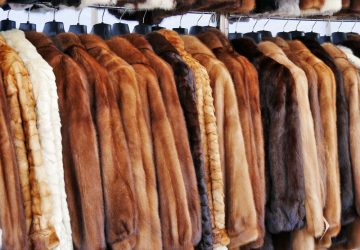While our daily headlines provide an in-depth look at the biggest stories related to anti-consumer food and beverage activism, there are dozens more that we simply can’t get to. Here’s a sampling of what’s been on our plate today.
All seven recently arrested leaders of SHAC (a special-interest subset of the terrorist Animal Liberation Front) pleaded not guilty yesterday to
charges that they planned attacks and stalked victims as a part of their campaign. San Diego Union Tribune columnist Joseph Perkins writes that
SHAC “actually posted an online list of its ‘Top 20 Terror Tactics,’ including vandalism, threatening letters and phone calls, e-mail ‘bombs’ to crash computers, home invasions and physical assaults.” Managers of one SHAC-targeted company even
received hand-delivered death threats at their homes. Leaders of the more “mainstream” animal rights group PCRM (the misnamed
“Physicians Committee for Responsible Medicine”) must be nervous, given
their group’s demonstrable connections to the SHAC thugs.
In a Washington Times op-ed, columnist Jacob Sullum criticizes unsupported claims (often spouted by Marion Nestle, Kelly “Big Brother” Brownell, and Margo Wootan) that food commercials lead to childhood obesity. Sullum sums up the conclusions of Todd Zywici, director of the Federal Trade Commission’s Office of Policy Planning: “If anything, children are less exposed to food commercials than they were when they were thinner. Food ads are not more frequent, and kids spending less time watching broadcast television and more time playing video games, using computers, or watching cable TV, DVDs or videotapes — media with fewer or no food ads.” Federal Trade Commission Chairman Timothy Muris adds: “Our dogs and cats are fat and it’s not because they’re watching too much advertising … a ban on advertising is impractical, ineffective, and illegal.”
The Associated Press reports that
the anti-GMO Ruckus Society, a group that runs “training camps” for environmental radicals, is busy organizing activists to protest the upcoming GOP national convention in New York City. While Ruckus’s more recent exploits have focused on the finer points of teaching high-tech sabotage, its real claim to fame was
its role in the Seattle riots surrounding the 1999 World Trade Organization meetings. Ruckus leader John Sellers was arrested outside the 2000 Republican convention;
police at the scene confiscated weapons from other protesters, including piano wire and gasoline-soaked rags tied to metal chains.



